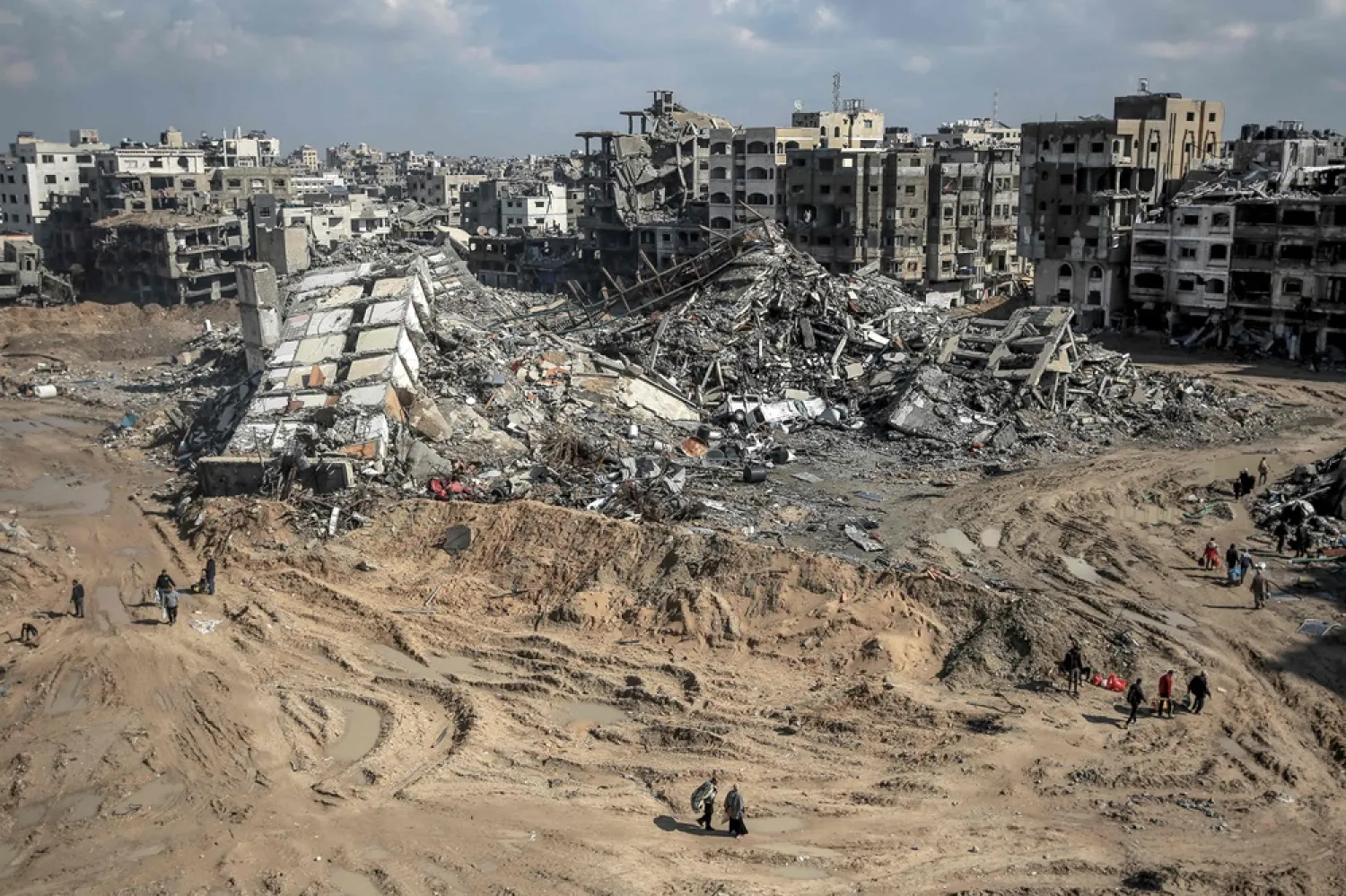Palestinians huddling under bombardment in Gaza said on Monday they hoped a visit to the region by the US secretary of state would finally deliver a truce, in time to head off a threatened new Israeli assault on the last refuge at the enclave's edge.
Antony Blinken arrived in Riyadh at the start of his first Middle East trip since Washington brokered an offer, with Israeli input, for the first extended ceasefire of the war.
The offer, delivered to Hamas last week by Qatari and Egyptian mediators, awaits a reply from militants who say they want more guarantees it will bring an end to the four-month-old war in the Gaza Strip.
"Impossible to say if we’ll get a breakthrough, when we’ll get a breakthrough," a senior US official told reporters during the flight to the Saudi capital. "The ball right now is in Hamas’ court."
Beyond the truce itself, Blinken aims to win backing for US plans for what would follow: rebuilding and running Gaza, and ultimately for a Palestinian state - which Israel now rejects.
"If we get a humanitarian pause, we want to be in a position to move as quickly as possible on the various pieces of 'day after'," the US official said.
Washington also seeks to prevent further escalation elsewhere in the Middle East, after days of US air strikes against pro-Iranian armed groups across the region.
British defense minister Grant Shapps told parliament on Monday that the air strikes had depleted the ability of Yemen's Houthis to target Red Sea shipping, but the threat was "not fully diminished".
Israel has pressed on with its offensive and threatened a new ground assault on Rafah, a small city where over half Gaza's 2.3 million people are now penned against the enclave's southern border with Egypt.
Israeli Prime Minister Benjamin Netanyahu, visiting troops on Monday, said Israeli forces had killed or wounded more than half of Hamas' fighting forces and would carry on until "total victory".
Senior Hamas official Sami Abu Zuhri dismissed Netanyahu's assertions, and said he was "playing the game of making delusional victories" in the face of continued resistance.
The ceasefire proposal, as described by sources close to the talks, would see a truce of at least 40 days when militants would free civilians among remaining hostages they are holding, followed by later phases to hand over soldiers and dead bodies.
The only truce so far lasted just a week.
"We want the war to end and we want to go back home, this is all that we want at this stage," said Yamen Hamad, 35, a father of four reached by messaging app at a UN school in Deir al-Balah in central Gaza. The area is one of the few where Israeli tanks have yet to advance, and is jammed with tens of thousands of displaced families.
"All we do is listen to the news through small radios and view the internet looking for hope. We hope that Blinken will tell Netanyahu enough is enough, and we hope our factions decide in the best interest of our people."
FIGHTING IN KHAN YOUNIS, GAZA CITY
In one of the war's biggest battles, Israeli tanks have been advancing for two weeks in Khan Younis, the main southern city, which was already housing hundreds of thousands of people who fled other areas. Fighting has also resurged in Gaza City in the north of the Strip, in areas Israel said it subdued in the war's first two months.
The Israeli military said on Monday its forces had killed dozens of Palestinian fighters in combat in areas in northern, central and southern Gaza over the last 24 hours.
Palestinians described heavy fighting in Gaza City, particularly its western areas close to the Mediterranean shore, which had come under bombardment from Israeli warships. UNRWRA, the UN aid agency for Palestinians, said a food convoy headed there had come under fire though nobody was hurt.
Gaza authorities say more than 27,000 Palestinians have been confirmed killed in Israel's assault, with thousands more dead feared unrecovered in the rubble. Israel says 226 of its soldiers have been killed in Gaza since 1,200 people were killed and 253 hostages captured in the Oct. 7 Hamas attack on southern Israel that precipitated the war.
After Israel announced last week that it was preparing for a potential ground assault on Rafah, international aid agencies and the UN said they feared the humanitarian consequences would be catastrophic.
Gazans fear it would drive them out of the enclave once and for all into Egypt.
An Israeli official told Reuters the military would coordinate with Egypt and seek ways of evacuating most of the displaced people northwards before any Rafah ground sweep.
Netanyahu says any pause in fighting would be temporary if Hamas fighters are still at large. Hamas says it will not agree a truce or free its hostages unless it receives guarantees that Israel will pull out of Gaza and end the war.
The exiled leader of Hamas, Ismail Haniyeh, said last week he would travel to Cairo to deliver his response to the ceasefire proposal, but has yet to turn up there.
A Palestinian official with knowledge of the negotiations told Reuters the Hamas response could come "soon" but it was up to Blinken to nudge Netanyahu to make concessions.









